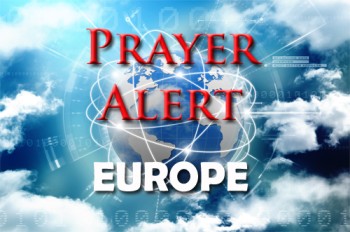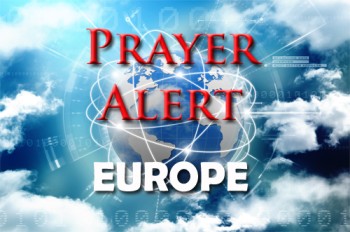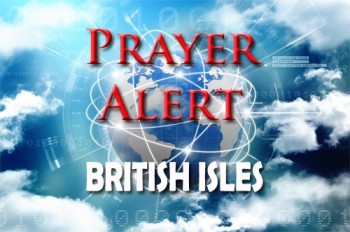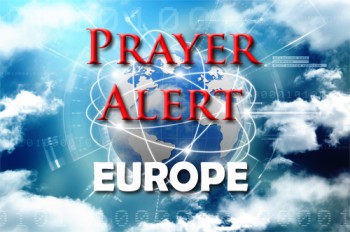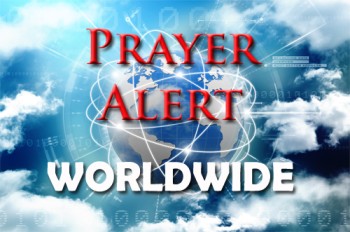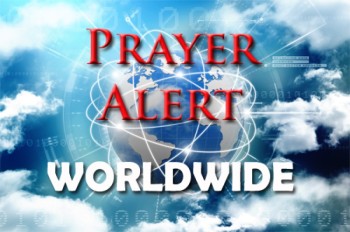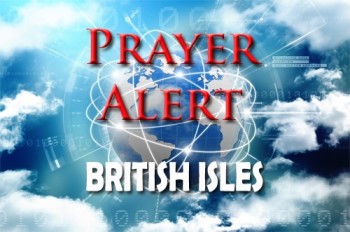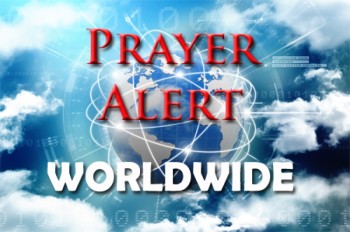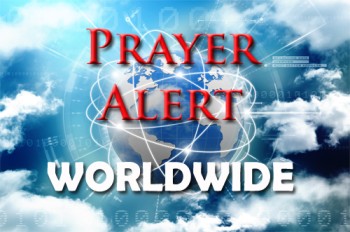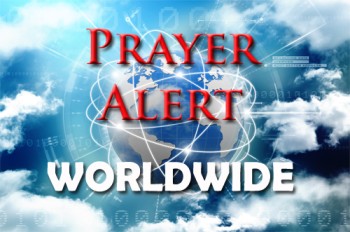Displaying items by tag: elections
Europe: big swing to far-right in EU elections
Following the European Parliament election, the European People's Party (EPP) has secured 184 seats, a quarter of the 720-member chamber. Far-right groups also made significant gains. The centre-left Socialists and Democrats remained stable, but the liberal Renew Europe group suffered significant losses. EPP leader Manfred Weber emphasised the party's alignment with industry, rural areas, and farmers. The party might form a coalition with socialists and liberals or negotiate with right-wing parties without alienating centrists. Far-right parties like France's National Rally and Italy's Brothers of Italy made notable strides, while Spain's Vox party lost ground to a new far-right party. If unified, the far right would be the second-largest force in Parliament. Ursula von der Leyen's re-election prospects as Commissioner are uncertain, as she needs full support from the three centrist groups.
Fake news ahead of EU elections
Ahead of the EU and UK elections, false claims about immigration are spreading, particularly on social media. One Facebook post says that nearly 97% of Spain’s minimum basic income recipients are immigrants. In reality, official data show that 82.4% are Spanish nationals and only 17.6% foreigners. Elsewhere, Dutch far-right activist Eva Vlaardingerbroek has said that most residents of Amsterdam, Brussels, and London are immigrants, whereas official statistics contradict this. Immigration remains a significant issue in Europe, influencing voter sentiment and political strategies. A recent poll reveals that half of Europeans disapprove of the EU’s migration policies, wanting stricter border controls. Some national governments have adjusted their immigration policies in response.
Three major parties rule out raising VAT
Labour, the Conservatives, and the Liberal Democrats have all pledged not to raise value-added tax (VAT) if they win the general election. Chancellor Jeremy Hunt confirmed that the Tories would maintain the current VAT rate, challenging Labour to do the same. Shadow chancellor Rachel Reeves dismissed claims of a planned VAT hike as 'nonsense,' also ruling out increases in income tax or National Insurance. Lib Dem spokesperson Munira Wilson echoed this. Ahead of the official election campaign, Labour promised economic stability and explicitly ruled out tax hikes for working people. They plan to impose VAT on private school fees to fund state school teachers. Jeremy Hunt criticised Labour's tax stance, suggesting a potential VAT rise if they win. However, Rachel Reeves labelled this claim 'absolute nonsense’, reiterating Labour's commitment not to increase taxes on working people.
Green MEPs threaten to oppose von der Leyen’s bid for re-election
Green members of the European Parliament will oppose Ursula von der Leyen's bid for a second term as president of the European Commission if she aligns with hard-right nationalists, according to Terry Reintke, German Green MEP chair. Reintke stated that her group would ‘absolutely’ not support von der Leyen if she made a deal with the European Conservatives and Reformists (ECR), which includes Italian prime minister Giorgia Meloni's group. She said that an alliance with the ECR, known for opposing EU green policies, would jeopardise the EU's climate action plans, potentially stalling or halting the Green Deal; this would be disastrous for both the climate and Europe's economic competitiveness against the USA and China. This announcement adds to von der Leyen's challenges, as the centre-left has also pledged not to support her if she collaborates with hard-right parties. To secure a second term, she needs an absolute majority of the 720 MEPs in the new parliament, requiring a broad coalition beyond her centre-right European People’s Party (EPP), which is expected to win around 175 seats.
South Africa: has the ANC lost its way?
For years, the African National Congress (ANC) stood as a beacon of hope in South Africa, dedicated to ending white minority rule and championing democracy and equality. Revered under Nelson Mandela, the ANC's transformation from a liberation movement to a ruling political party brought high expectations. However, thirty years later, many South Africans feel disillusioned, believing it has failed to fulfil its promises. Former president Jacob Zuma, ousted in 2017 due to corruption allegations, has returned with a new party, uMkhonto weSizwe, criticising his successor Cyril Ramaphosa, but his disqualification from a parliamentary run due to a criminal conviction has heightened political tensions. The 29 May elections see the ANC struggling to maintain its majority and possibly facing having to form a coalition government - which would mark the most significant political shift since the end of apartheid in 1994.
South Africa: new health bill weeks before election
Cyril Ramaphosa has signed the National Health Insurance (NHI) Act into law, aiming to provide universal health coverage and address the country's two-tier health system. The law seeks to balance a publicly funded sector, which serves 84% of the population and is overburdened, with private insurance access enjoyed by a minority. He hailed the law as a major step towards equality, rejecting the continuation of privileges for a few. The act will gradually reduce the role of private insurance, establish a public fund for free healthcare access, and regulate fees and prices for NHI-funded benefits. Critics argue the law will strain public finances, reduce patient choice, lower care quality, and drive doctors out of the country. Opponents, including the Democratic Alliance and civil society group AfriForum, plan to challenge it in court, claiming it is a vote-seeking ploy before the highly contested May 29 elections. The Health Funders Association noted the law’s gradual implementation, assuring no immediate changes to medical scheme benefits, contributions, or taxes. Supporters, like the NEHAWU labour union, urge full political support to ensure proper funding for the NHI.
Keir Starmer faces Labour anger after Tory MP's defection
Sir Keir Starmer’s decision to welcome Tory MP Natalie Elphicke's defection to Labour has stirred mixed reactions among Labour MPs. Elphicke, previously a Conservative representative for Dover, made the unexpected switch, causing some Labour members to express confusion and dismay, despite leadership viewing it as a significant coup. Critics within the party, including Canterbury MP Rosie Duffield, find Elphicke’s switch puzzling, given her past criticisms of Labour’s policies and her controversial defence of her ex-husband, Charlie Elphicke, following his sexual assault conviction. The defection, happening just before Prime Minister's Questions, has complicated matters for Labour, already has candidates in Elphicke's constituency. (In practice, Mrs Elphicke will not contest the Dover election, as she plans to leave the Commons). Despite the internal discord and criticism from the Conservative side, labelling Elphicke as opportunistic, Sir Keir emphasises the broader strategic advantage of attracting former Conservative voters to Labour. This move, however, remains contentious among both Labour and Conservative members.
Nikki Haley suspends presidential campaign – but stops short of endorsing Trump
Former South Carolina Governor Nikki Haley has withdrawn from the presidential race, paving the way for a potential Biden-Trump rematch. In her announcement from South Carolina, Haley declined to endorse Donald Trump, though acknowledging his likely nomination as the Republican candidate. Her campaign, lasting over a year, focused on several key issues, including support for Ukraine, Israel, and Taiwan, concerns about national debt, and advocating for congressional term limits. Haley's decision follows a series of electoral setbacks, including a sole victory in Vermont on Super Tuesday and underwhelming performances in other primaries. Initially a strong contender in a crowded Republican field, Haley gained traction through impressive debate performances and support from influential donors and political figures. However, her campaign lost momentum due to several gaffes, including controversial remarks about the American Civil War and racism in the U.S. Despite maintaining a moderate stance on issues like gun control and abortion rights, critics suggested Haley didn't sufficiently distance herself from Trump. Her campaign endured until it became evident that her chances of securing the Republican nomination were slim, leading to her eventual suspension of the campaign. This exit sets the stage for a likely Trump nomination and a repeat of the Trump-Biden electoral battle in 2020. (The Independent) See also
Global: elections in the first half of 2024
2024 will see the most extensive year of elections ever, with 4.2 billion people in 76 countries set to vote. However, the state of democracy appears precarious; global reports show it contracting, accompanied by widespread disillusionment, especially among the youth. Elections often fail to rekindle faith in democracy, and authoritarian leaders often exploit them to their own ends. Moreover, elections can expose democracies to external threats, exemplified by Taiwan (13 January), under great pressure from its neighbour China. The one in Bangladesh (8 January) merely solidifies existing rule, with the main opposition party abstaining. In February Pakistan's election may escalate the conflict between Imran Khan and the military, while in Indonesia the outgoing president is backing a candidate who has a record of human rights abuses. 17 March will demonstrate a stark contrast: Russia's vote will proceed while Ukraine's may be postponed to protect its voters from being killed by Russian bombs. In South Africa, maybe as early as May, an opposition coalition could take power - but would that make any significant difference? The month-long election in India carries concerns over prime minister Narendra Modi’s growing authoritarianism. In June the EU assembly elections, the world's second-largest, may see far-right, anti-democratic parties making significant gains, further complicating the global democratic landscape.
DRC: crucial elections complicated by technical problems
On 20 December, amid widespread delays and logistical complications, polling stations opened in the Democratic Republic of Congo (DRC). Because of the delays, it was decided to extend the voting for a second day. The election is a significant moment for the nation. Over 40 million are expected to vote, including Congolese nationals living in some other countries: they will elect not only the president, but also 484 national assembly members, 715 members of provincial assemblies, and 311 municipal council members - a total of more than 1,500, from a pool of over 100,000 candidates. Several opposition candidates have expressed serious concerns about the chaotic process and possible fraud. Félix Tshisekedi, the incumbent president, is seen as likely to be re-elected, given that the opposition has remained fractured. If re-elected, he has threatened to declare war on Rwanda: see The DRC has grappled with years of conflict and political instability, making this election a crucial step towards achieving stability and democracy.
